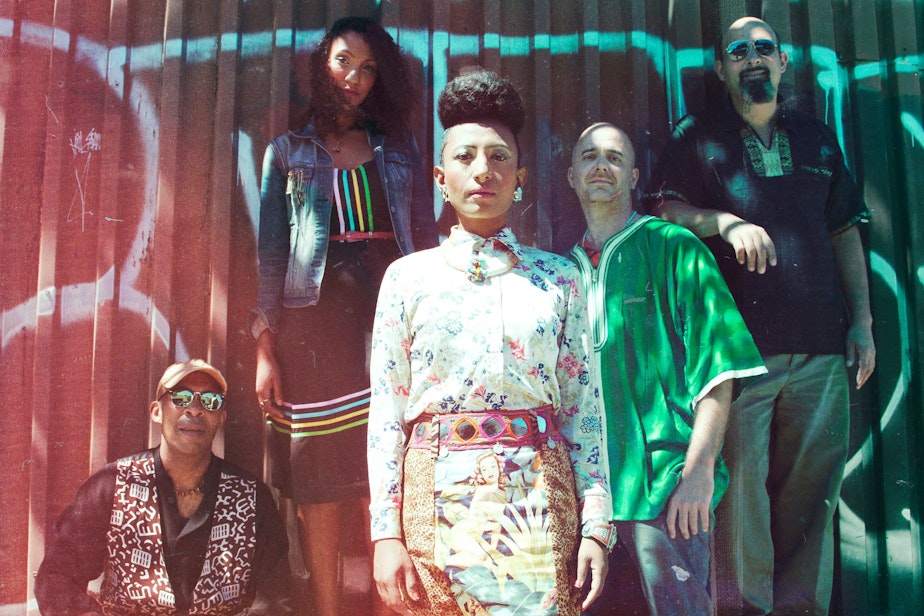Redefining borders - not as blockages, but roads

KUOW's Marcie Sillman in conversation with Alsarah, of East African RetroPop band Alsarah and the Nubatones.
As a media organization, we spend a lot of time chasing the news. But sometimes, the news comes to us.
The day after Sudanese dictator Omar al-Bashir’s government fell, the front woman of Alsarah and the Nubatones came to the studio for a conversation with Marcie Sillman.
Alsarah and the Nubatones
This June would have marked Sudanese president Omar al-Bashir’s 30th year in power. But he didn’t make it to the anniversary: last week, protests across the country toppled the dictator. One member of the Sudanese diaspora who’s been watching avidly is Alsarah, who heads the band The Nubatones. She spoke with Marcie Sillman about history, music, and revolution.
Alsarah, who had been and continues to be vocal about the revolution, says she’s not an activist. “Activism is really hard work, and I don’t want to claim that.” But above all else, she is an artist. “And artists are the megaphone of the people.”
Coming to the US as a refugee with family still in Sudan, the manmade boundaries she was taught did more harm than good.
Sponsored
“I grew up very confused about my identity, because the borders that I was told to adhere to never made sense. You know, I knew part of my family lived in one country and another part lived in another country. And I was from this one place, but I went to this other place. And I had more in common with some people, but not with other people.”
But her music is very rooted in place - specifically, in the Nile. “I cannot underestimate the importance of the Nile. You see it in the way I love water, I think. I've never seen it as a thing that stops me. I always thought of it as a way to freedom. So… I carry it inside me. It's there all the time.”
Immigrants in diaspora have little choice but to figure out what it means to straddle multiple worlds - which, she says, can be traumatic but could also be a magic. Americans, however, can’t necessarily say the same.
“I don't think Americans have ever really decided what it means to be American,” she says. “So it's not going to decide now, on my back, without consulting me.”
While the country struggles with its own identity and who it wants to be, Alsarah will be in New York, and Sudan, and anywhere the Nile River flows, rooting herself in home.




